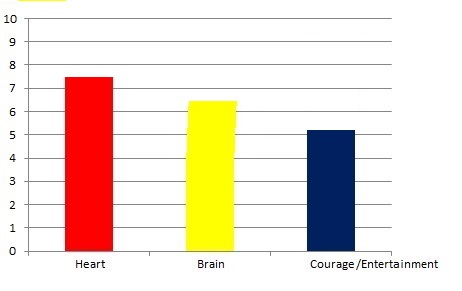
Alphabetical Menu
Chronological Menu
|
The Tobacconist  In 1930s Germany, 17-year-old Franz (Simon Morzé) lives with his mother, Margarete (Regina Fritsch), in the countryside. She sends him to Nazi-occupied Vienna to work as an apprentice for a tobacconist, Otto Trsnjek (Johannes Krisch), who owns a cigar shop. Franz sleeps in a small room in the back of the shop where he writes letters to his mother. One day, Sigmund Freud (Bruno Ganz), a regular customer, shows up at the shop and soon he and Franz befriend one another. After meeting and romancing Anezka (Emma Drogunova), Franz seeks Dr. Freud's advice about how to deal with the first love of his life. Based on the novel by Robert Seethaler, The Tobacconist is a mildly engaging coming-of-age story that's too unfocused and clunky to be as sweeping, powerful and engrossing as it could've been. The screenplay by writer/director Klaus Richter and co-writer Nikolaus Leytner weaves the relationships between Franz and his mother, Franz and Otto, Franz and Anezka, and Franz and Dr. Freud all at once thereby leaving most of them feeling underdeveloped. There's also the threat of the Nazis, although the film shies away from going into dark territory when it comes to the horrors of the Holocaust. When Franz notices a locked door in his room at the shop, Otto snaps that it's none of his business what's in there. Why would Otto say that? What is he hiding? The Tobacconist has a few scenes like that which tease the audience with suspense without following through. Franz is an interesting character who's not always likable because he resorts to violence to win Anezka over. When a man stands in his way of finding out where she lives and ends up insulting Anezka, Franz physically assaults him. In other cases, he merely imagines using violence on others, but even the fact that he considered such toxic behavior, is very disturbing. There's clearly a lot of pain and sadness lurking beneath Franz's surface much like there is in Antoine Doinel in The 400 Blows, but, yet again, The Tobacconist doesn't delve deeply enough to explore those darker elements. The Tobacconist relies on too many brief sequences that pull the rug from under the audience every now and then which feels cheap and gimmicky. If it were used just once or twice, that would be forgivable, but it happens too many times and eventually becomes annoying and distracting. The same can be said for the excessive use of symbolism. How many times does the audience have to see a spider on the wall in Franz' room? That said, some of the imagery, especially on the lake by Franz' rural home and some underwater scenes do look breathtaking and adds some atmosphere. There's also a memorable scene when Franz and Anezka lay in the snow together naked in the middle of the night after having sex. The most emotionally resonating scenes, though, are the ones between Dr. Freud and Franz thanks to the charismatic and moving performance by Bruno Ganz, a true legend of film and theater.. He helps to elevate the film ever so slightly above mediocrity and to captivate your attention whenever he's onscreen. Simon Morzé also gives solid performance, although he is undermined by a screenplay that leaves more to be desired. At a running time of 113 minutes, The Tobacconist is overstuffed, undercooked and ultimately underwhelming. See it for Bruno Ganz's final film performance.  |